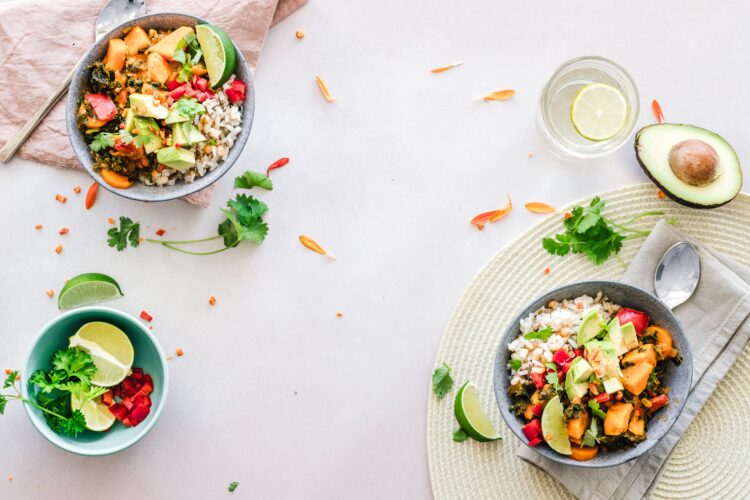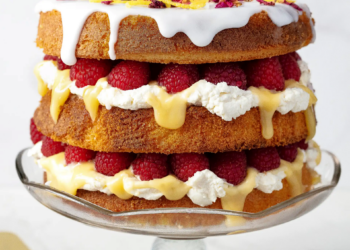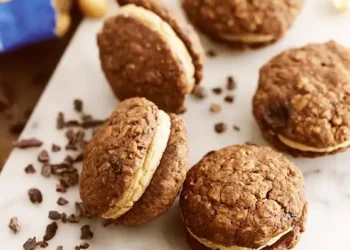We’re all trying to go to the shop less, so here is how to ensure the food you buy lasts longer

Eating all your meals at home means your fridge has probably never been so full. Nothing feels as good as having stocked up well after a big shop — but then you kick yourself when a few days later stuff has already started to go off.
As we all try to ensure the food we have at home lasts us longer, here are some tips to try.
Keep an inventory
This doesn’t have to be complicated and will make shopping a breeze. Rather than making a new shopping list each week or winging it at the shop, keep a list on your phone. Tick what you have at home and pick up other ingredients as you need them. Stick to the list and resist impulse buying. It helps to have a meal plan too. The new issue of Irish Country Magazine is in shops and available for digital download now.

Discover new ideas for leftovers
Google the ingredients you have to inspire new recipe ideas. Try the recipe generator on lovefoodhatewaste.com to suggest recipes based on the seemingly random ingredients you have available. It’s also good to have go-to recipes for leftovers, such as:
- Vegetable fritters — grate any type of vegetables and mix with eggs and flour for a tasty lunch or quick supper.
- Turn leftover rice into veggie burgers.
- Frittata — we have no doubt that you have tried using up vegetables in a frittata but have you ever tried a leftover spaghetti frittata? Trust us, it’s delicious.

Think about your scraps
If you’re already in the habit of composting, brilliant! But that might not be for everyone. Try making a vegetable stock with scraps instead. It’s also fun to try regrowing vegetables like leeks, celery and spring onions from scraps. Here is our guide.
Try to stretch meals
We all know that making a soup is a good way to use up leftover vegetables. But there are so many ways you can stretch your groceries to get a few more meals out of them.
- Old fruit can be stewed into a compote to add to yogurt, pancakes and granola.
- Serve simple vegetable sides, such as canned or frozen vegetables, alongside your casseroles and roasts so the meal will go further.
- Add canned beans to meat dishes like chilli or tacos to make them more filling.
- Serve appropriate portion sizes and don’t overestimate how much food everyone needs to feel full.
Learn how to store foods correctly
You don’t need to start canning foods and salting fish like olden times to ensure your groceries last longer. Here are a few simple tricks to try to get a few extra days out of your shopping.
- Line the vegetable drawer with kitchen paper to soak up moisture from the vegetables as they chill. Excess moisture causes food to wilt faster, so this will keep your veggies for longer and keep your fridge clean.
- Store fresh herbs in a glass of water on the window sill after buying them. Extra herbs can be frozen with water or olive oil in ice cube trays to be added to dishes while cooking.
- Keep bananas together. Only snap off one when you are ready to eat it. You could also try wrapping the stems of the bananas in cling film when you first buy them to keep them fresher for longer.
- Wash berries in a bath of one part vinegar and three parts water before you put them in the fridge. It will kill the mould and bacteria that cause them to go off so quickly. Just ensure you dry them thoroughly before storing.
- Celery will only last a week or two in the plastic bag it comes in. But if you wrap celery in tin foil instead, it will allow gas to escape, ensuring the celery stays crisper for longer.
- Store mushrooms in a paper bag. Keeping them in the plastic tub they come in will only create moisture which will make them rot faster. Keeping them in a paper bag keeps them dry, and if they get too dry you can rinse them in the sink to rejuvenate them.

Rethink your fruit and vegetable drawer
Some fruits and vegetables emit a gas called ethylene which breaks down chlorophyll. That is the chemical that gives plants their green colour, and it helps them to convert light into energy. Some make lots of ethylene and some start to go off in its presence.
These foods give off a lot of the gas and are also vulnerable to it, so should be stored separately:
- Apples, avocadoes, bananas, melons, onions, tomatoes, pears
These ones don’t make a lot of their own ethylene but are sensitive to it:
- Asparagus, broccoli, cabbage, carrots, cauliflower, celery, courgette, cucumbers, grapes, lettuce, leafy greens, sweet potatoes
These fruits and vegetables don’t produce ethylene and aren’t affected by it, so you can store them anywhere:
- Peppers, berries, citrus fruits, garlic, mushrooms, pineapples.
One exception is potatoes. Keeping an apple in your bag of potatoes will keep them fresher for longer, as they respond well to the high levels of ethylene gas the apple produces.
In general, all fruits and vegetables need to breathe. So do not squash them together, and if they are in plastic bags, make sure there are holes to let air circulate.
Know when it is okay to disregard food labels
Some foods can be consumed long after their best-before dates. There is a difference between ‘best before’ and ‘use by’ — best before is about the freshness of the food, and the use by date is a safety issue. You only need to throw out food that is past its use by date.








